GALLERY
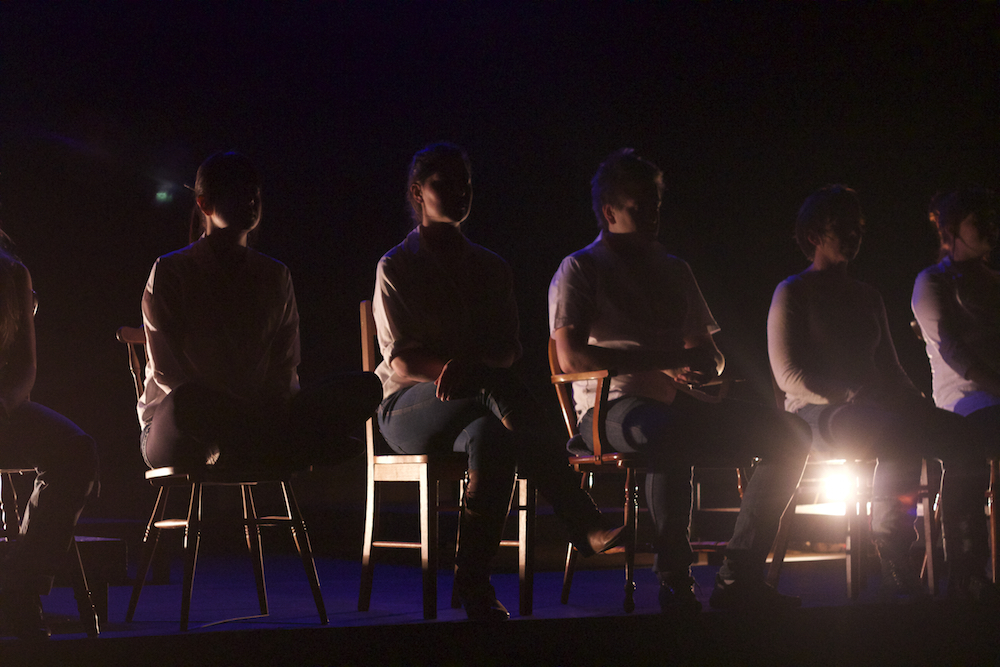
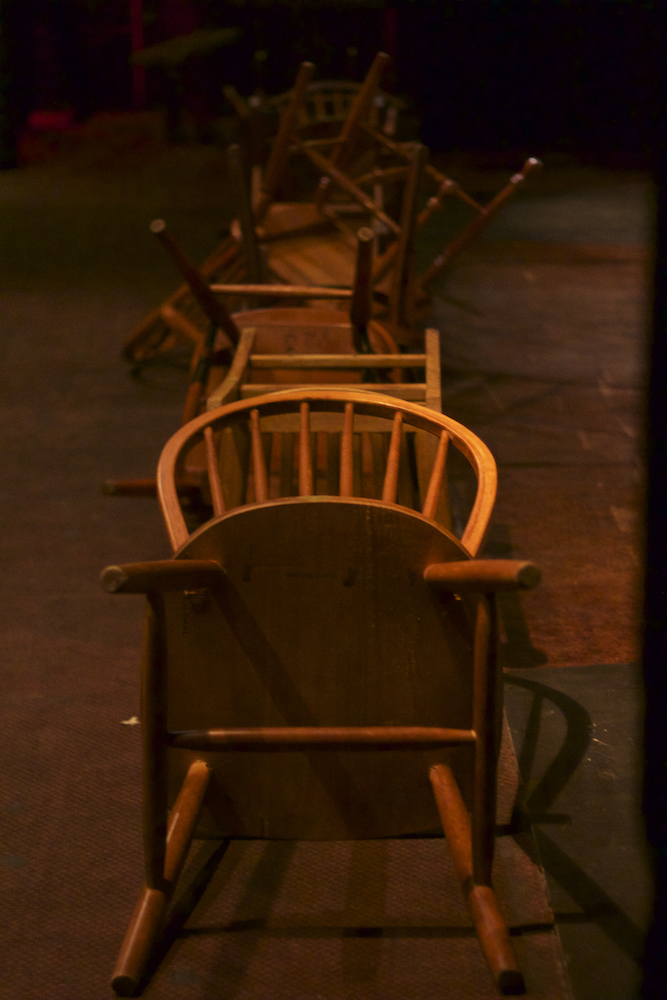
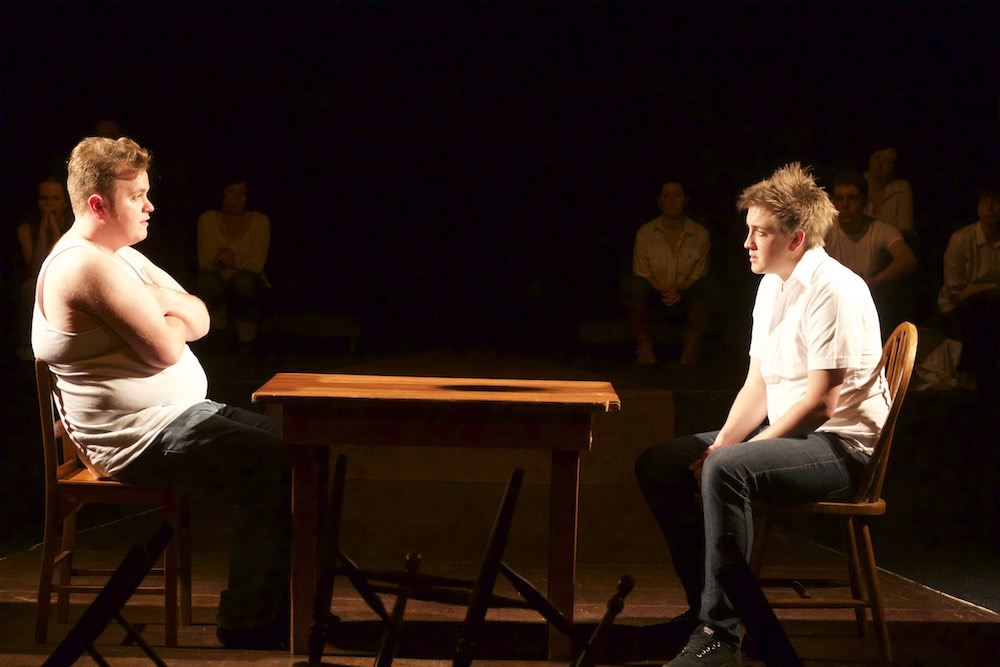
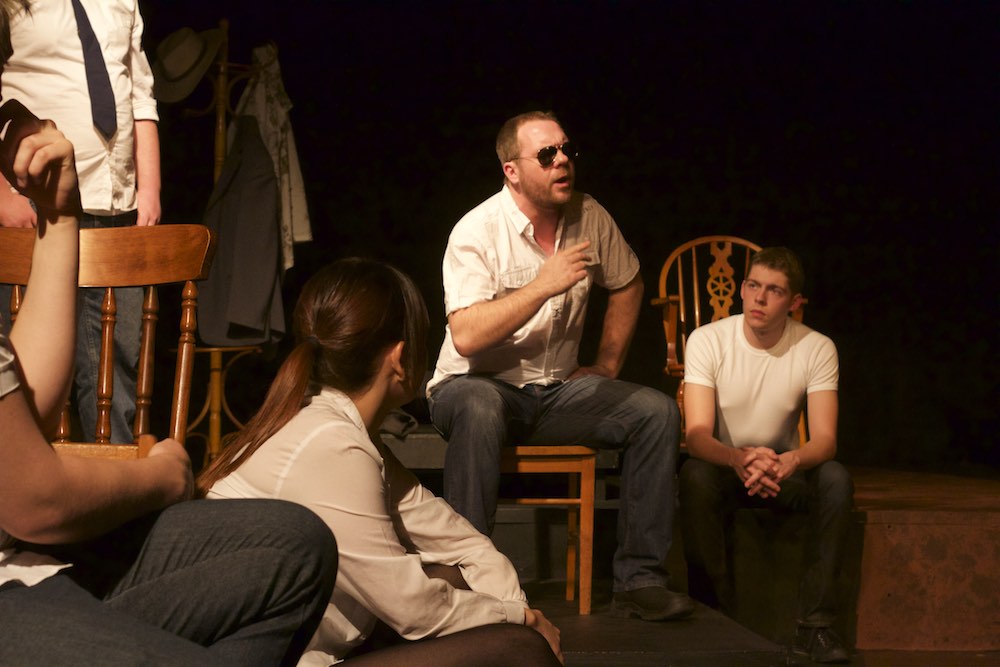
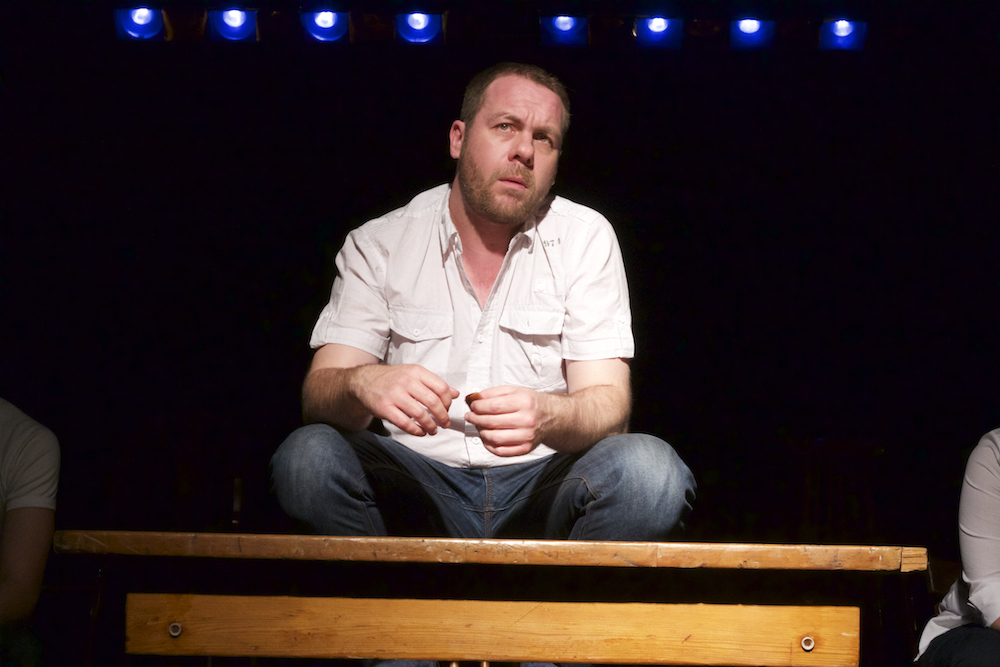
REVIEWS
The Laramie Project: Ten Years Later
By Peter Maddern, Oct 4 2012
Kryztoff Raw
In 1998, Matthew Shepard, a young gay man, was brutally bashed and left to die just outside his home town of Laramie, Wyoming. In 2008, The Tectonic Theatre Project returned to Laramie to see what had changed in ten years. A feature of this play is the depth to which they did return and the efforts they went to in order to expose thoughts, themes and tensions that existed over the events of 1998, which had put this small community on the map, obviously in ways not desired.
As such it is a fascinating tale of how people react or often don’t react to such events, how some take the issue on as a cause celebre, how others don’t see it being about them and how those often closest involved seek to revise the past to suit a preferred future. If one struggles to relate to such a tale, consider our own Snowtown murders.
Had the play just kept on the events, the ‘hate crime’ and rather not strayed onto issues of same sex marriage and same partner pensions it would have been yet stronger for it, but no doubt that view will not be universally accepted. The opening premise, about what had changed, somewhat begs the question ‘what should have changed’ and in the end one wonders whether anything had changed in Laramie that didn’t also shift in the US or the western world anyway. But all that is for delicious red wine debate after.
But more attention needs to be given to the performance. As an audience we are greeted with nine actors spread out on chairs across the stage. Each is to convey the emotions of a variety of characters and straddle American accents with their own. In the nine, we have probably the full crop of Adelaide’s most talented young actors going at it to make their particular marks on the audience without competing for personal acclaim.
Holding this together is director Charles Sanders who may in The Laramie Project consider this his coming of age in that role. We have seen Sanders excel in solo shows but this was a master work, commanding the magnificent nine, covering nearly 50 characters across a large space with the most minimal of props. Yet, we knew clearly who they all were and where they were, particularly the stage setting for the questioning of the two murderers made it all seem quite harrowing and claustrophobic. In all of this, Christian Donoghue’s lighting must be noted for being exquisite.
To choose or highlight particular performers is perhaps unfair as each was called on and delivered important monologues and all possessed perfect timing. But Josh Battersby’s Jonas Slonaker (Shepard friend), Eddie Morrison’s Russell Henderson (murderer) and Tamara Lee’s Judy Shepard (Matthew’s mother) have stuck in this reviewer’s mind. But, as I say, this list could happy extend out.
We talk a lot of what good things there are in our local theatre but struggle to sometimes locate them. This, ladies and gentlemen, is it – our best on and off stage performers of the next generation are all here at Higher Ground til Oct 14th. Don’t say you weren’t told.
Kryztoff Rating4.5K
The Laramie Project: Ten Years Later
By Barry Lenny, October 8th 2012
GlamAdelaide
The Laramie Project was a work created by the Tectonic Theatre Project when the members went to Laramie, Wyoming, to talk to townspeople after the 1998 brutal bashing and eventual death of a gay man, Matthew Shepard, and the trial and life imprisonment of the two men who beat him and left him tied to a fence. They returned ten years later, in 2008, to speak to local citizens again to see what the long term impact had been and what, if anything, had changed. This production, written by Moises Kaufman, is the result of that visit. As with the original play, it uses only the words of the people spoken to, including the two killers.
Director, Charles Sanders, winner of the 2012 Adelaide Critics Circle award for Emerging Artist, has assembled an excellent cast of some of Adelaide’s finest actors: Matilda Bailey, Joshua Battersby, Laura Brenko, Amy Victoria Brooks, Nic Krieg, Sara Lange, Tamara Lee, Eddie Morrison, and Nathan Porteus. Each performer is required to portray a number of different roles during the play, as members of the Tectonic Theatre Project and as various residents of Laramie, not only presenting New York and Wyoming accents but also playing both male and female characters.
Laramie has grown into a major university town and so there are people living and working there now who came to the area years after the event, but some of those were also interviewed, along with Shepard’s family, friends, university lecturers and, naturally, the police who were involved in the case. The cast create all of these characters, negotiating American regional accents as well as the wide range of personalities and emotions.
The first act sets up a complex and contradictory view of what had, a decade earlier, been universally accepted as a hate crime. An American ABC television news magazine, 20/20 (something like 60 Minutes), reported on the crime and gave it a very different slew, reporting it to be a robbery that got out of hand and that had nothing to do with Shepard’s sexuality. Those closely involved were furious and disgusted by this spin on what had happened. Others, who were less aware of the crime, took their report at face value. It was also suggested that the murder was the result of a drug deal that went wrong.
Some university students, of course, were only children when it happened and knew little or nothing about it, happily accepting whatever they were told. The beliefs expressed were diverse and often seriously at odds with what the Tectonic members had discovered ten years earlier. It appears that many were using denial as a means of dealing with what really happened. Even the fence, to which Shepard had been tied for eighteen hours after the beating until he was found, had been removed, and the materials reused in numerous other fences to prevent any identification. He died in hospital six days after the attack.
There is superb work from the entire cast, as individuals and as an ensemble, as they switch quickly and smoothly from one character to another in a well paced act. Only a few chairs and other odd items are used as props, and such devices as removing a jacket, or adding a neck scarf are all that is needed to denote the many different characters, aside from the many different characterisations created by the skill and talent of the cast.
In the second act we meet the two perpetrators, Russell Henderson and Aaron McKinney, and Matthew Shepard’s mother, Judy, in rather longer interviews, as well as many more, shorter interviews. It is in this act that more emphasis is placed on the wider aspects: gay rights, same sex marriage, same sex partners of those working there receiving pensions from the University, and the passage of the Matthew Shepard and James Byrd Jr. Hate Crimes Prevention Act.
This is where things become a little confusing as the links between some of the later events and what happened to Matthew Shepard are tenuous at best and one cannot help wondering if they would have happened anyway as part of national and international trends. The focus seems to slip away from the core event at times with these other fragmentary aspects intruding. What holds the second act together, are those three aforementioned, extended interviews with the central characters.
This is a very evenly matched cast and, under the acute direction of Sanders, they present a though-provoking and often very moving production. When we meet Russell Henderson, in a fine portrayal by Eddie Morrison, we find a young man who admits to tying Shepard to the fence and then standing by and watching him being beaten and tortured. He admits his guilt of assisting with the tying, and of doing nothing to stop what happened, accepting his own share of the blame for the crime and regretting that he had not acted to stop it. Morrison convincingly leads us to the conclusion that Henderson was a weak person, overwhelmed by the stronger personality of McKinney.
The interview with Aaron McKinney, a rather frightening characterisation from Nathan Porteus, is very different largely because of the matter of fact, unemotional responses to the questions posed. He even states that he did not remember Henderson tying up Shepard and that he had thought that he had done it himself, and he also admitted that he had carried out the beating. He was quite happy to admit that he hated gay men. He expressed remorse, but it was not for his crime. His remorse was for letting his father down by not living the way that his father had taught him. Porteus gives is a chilling characterisation of this cold-hearted killer.
Tamara Lee plays Judy Shepard in a remarkable performance, outwardly looking numbed by the murder of her son and all that had happened after, with a gentle stillness in her demeanour, but in her eyes there is a deep seated pain and a hollow sadness. The audience was hushed during this interview.
There are plenty of other great performances by the rest of the marvellous cast in the many other roles in this powerful and important piece of theatre. It only has a short run, so don’t delay in booking your tickets.
chilling true tale returns to haunt
The Laramie Project: Ten Years Later
Peter Burdon, October 11th 2012
The Advertiser
THE Laramie Project, a theatre piece about the terrible murder of Matthew Shepard in a homophobic hate-crime that made news world wide, is rightly regarded as one of the most socially important plays of our time.
A decade after Matthew's death, the creators returned to Laramie to do it again. Laramie: Ten Years Later is the outcome.
A strong company of nine, many of them seasoned artists, deliver an enthralling account. Riveting for its honesty - like to original, every word is true, verbatim transcripts of interviews - the emotional peaks and troughs are heavy going, but utterly gripping.
Director Charles Sanders cleverly begins with a maelstrom of lines from the original, a reminder of the noise that surrounds us, thanks especially to the media.
The first part of Ten Years Later consists of dozens of episodes involving more than 50 characters. Audience and actors alike watched intently at each statement, each exchange, building up a picture of a society that still hurts.
The second part is compelling for its testimony from the two murderers, interviews in prison where both are serving life.
The interview between Russell Henderson (Eddie Morrison) and a reporter (Nic Krieg) is draining, that with Aaron McKinney (Nathan Porteus) chilling.

